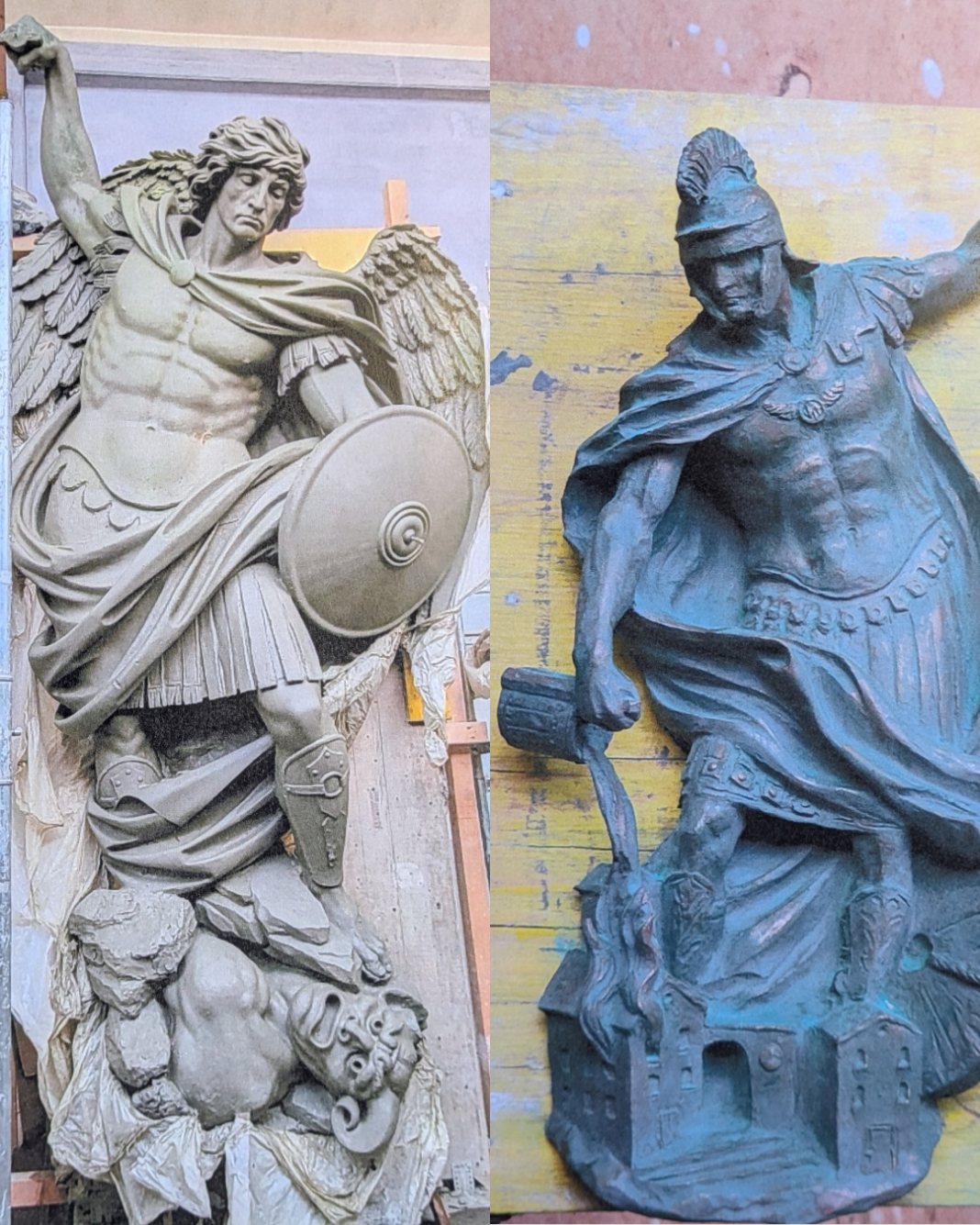A showdown over Catholic statues on a public building in a Massachusetts city represents yet another fight in a national conversation about the separation of church and state.
Quincy Mayor Thomas Koch commissioned statues of St. Michael and St. Florian, the patron saints of police and firefighters, to adorn its new police headquarters. But more than a dozen residents are suing Koch, alleging that the city is violating religious neutrality as outlined in the state constitution.
A judge granted a preliminary injunction in mid-October, barring the statues from being installed as litigation continues.
Koch told The Patriot Ledger, part of the USA TODAY Network, that the city would be appealing the ruling.
“We chose the statues of Michael and Florian to honor Quincy’s first responders, not to promote any religion,” Koch said. “These figures are recognized symbols of courage and sacrifice in police and fire communities across the world.”
The city of Quincy wants to install these two saint statues on the front of the new public safety building.
The Becket Fund, an organization that says it defends “religious liberty as a universal right” is representing the city in the case. The organization won a case representing Hobby Lobby in a landmark U.S. Supreme Court case granting private employers the right to deny contraception coverage to employees because of their religious beliefs.
The Massachusetts litigation coincides with lawsuits over several states’ efforts to display the Ten Commandments in public school classrooms. All of it comes at a time when the Trump administration is working to put its own stamp on what religious liberty means under the First Amendment.
President Donald Trump himself has vowed to bring religion back to the country, and members of his Religious Liberty Commission have said the First Amendment’s Establishment Clause doesn’t prevent the government from promoting religion and that it can and should do so.
The commission has been criticized by some who argue its purpose is promoting a conservative Christian views and not striving for religious liberty for all faith groups.
Fights over religious symbols on public property aren’t new, though. The U.S. Supreme Court allowed a massive Latin cross, referred to as the Bladensburg Cross, to remain on government property in Maryland in a 7-2 ruling in 2019. It was erected as a World War I memorial nearly a century before, and the court said the symbol of the Christian cross “took on an added secular meaning” when used in such ways.
“The cross is undoubtedly a Christian symbol, but that fact should not blind us to everything else that the Bladensburg Cross has come to represent,” Justice Samuel Alito wrote in the majority opinion.
The court noted, however, that keeping existing religious symbols is “quite different from erecting or adopting new ones.”
Decades prior, the Supreme Court ruled in 1984 that a Rhode Island city had not violated the Establishment Clause by having a nativity scene as part of its Christmas display. The court said any perceived promotion of Christianity through the display was “indirect, remove and incidental” and that it was “no more an advancement or endorsement of religion” than the government recognizing the origins of Christmas or patronizing museums with religious paintings.
BrieAnna Frank is a First Amendment reporter at USA TODAY. Reach her at bjfrank@usatoday.com.
USA TODAY’s coverage of First Amendment issues is funded through a collaboration between the Freedom Forum and Journalism Funding Partners. Funders do not provide editorial input.
This article originally appeared on USA TODAY: Catholic statues in Massachusetts mark latest religious liberty fight

